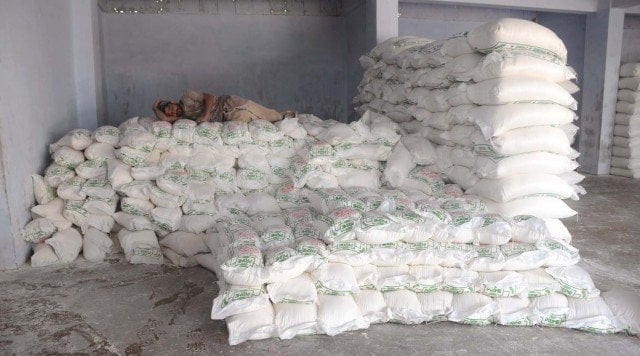Sindh okays flour price reduction
Decides to reduce price by Rs9.13 per kg

Keeping in view the impending flour crisis, the Sindh government has decided to reduce the commodity’s price by Rs9.13 per kilogramme (kg), giving subsidy to consumers.
The decision was made during the Sindh cabinet meeting, chaired by Sindh Chief Minister Syed Murad Ali Shah, on Tuesday.
The meeting was informed that the ex-mill rate, under which suppliers get flour from mills at Rs57 per kg, would be brought down to Rs47.87 per kg.
After a discussion on this issue, the cabinet gave the nod to release wheat to flour mills from October 16 and implement the decision to reduce the produce’s price across the province.
“It has come to our notice that flour is being sold for Rs70 per kg to Rs80 per kg in the market. Please ensure that it is sold at a lower price to suppliers and instruct district administration to control its retail price,” the CM directed Sindh chief secretary.
When informed of the development, Aftab Ahmed, a grocery shop owner in PECHS, lamented that flour price seemed to be rising with each passing day.
“Different companies sell flour at different retail prices, the lowest being around Rs68 per kg to Rs70 per kg,” he said, adding that the a 5kg pack of good quality flour was available for no less than Rs400.
Twin islands
Besides, the cabinet called for the federal government to revoke the controversial ordinance, which it said was introduced to establish the Centre’s authority over the twin islands of Bhandar and Dingi in Sindh.
Cabinet members said that no talks on the islands would be held with the federal government until and unless the controversial ordinance was withdrawn.
The cabinet termed the ordinance an attempt to grab the provincial government’s lands and trample the rights of local fishermen. They said the ordinance was unacceptable as it was against local people and provincial autonomy.
Infrastructure cess
Sindh Energy Minister Imtiaz Shaikh told the meeting that the excise and taxation department granted an exemption to coal mining and coal-powered energy generation companies working in Thar from infrastructure cess on imports.
However, he added, the exemption would last until June 30, 2020.
The meeting was told that the Economic Coordination Committee (ECC) had also announced an incentive package to accelerate development in Thar.
The ECC’s incentives include zero percent custom duty, exemption from special excise duty and federal excise duty, workers welfare and participation funds, exemption from withholding tax on procurement of goods and services and other levies. This relaxation would remain enforced for 30 years.
Besides, the provincial cabinet approved an increase of Sindh sales tax on services of transportation or carriage of petroleum oils through oil tankers from 13 per cent to 15 per cent, so as to maintain uniformity with other provinces. It would not create any burden on consumers and would not affect petroleum prices, the members asserted.
The cabinet also approved a draft bill of The IBA Sukkur University (Amendment) Act, 2020 to maintain uniformity in the organisation, management and control of public sector universities and degree-awarding institutes. The approved amendments were referred to the assembly.
Published in The Express Tribune, October 14th, 2020.



















COMMENTS
Comments are moderated and generally will be posted if they are on-topic and not abusive.
For more information, please see our Comments FAQ